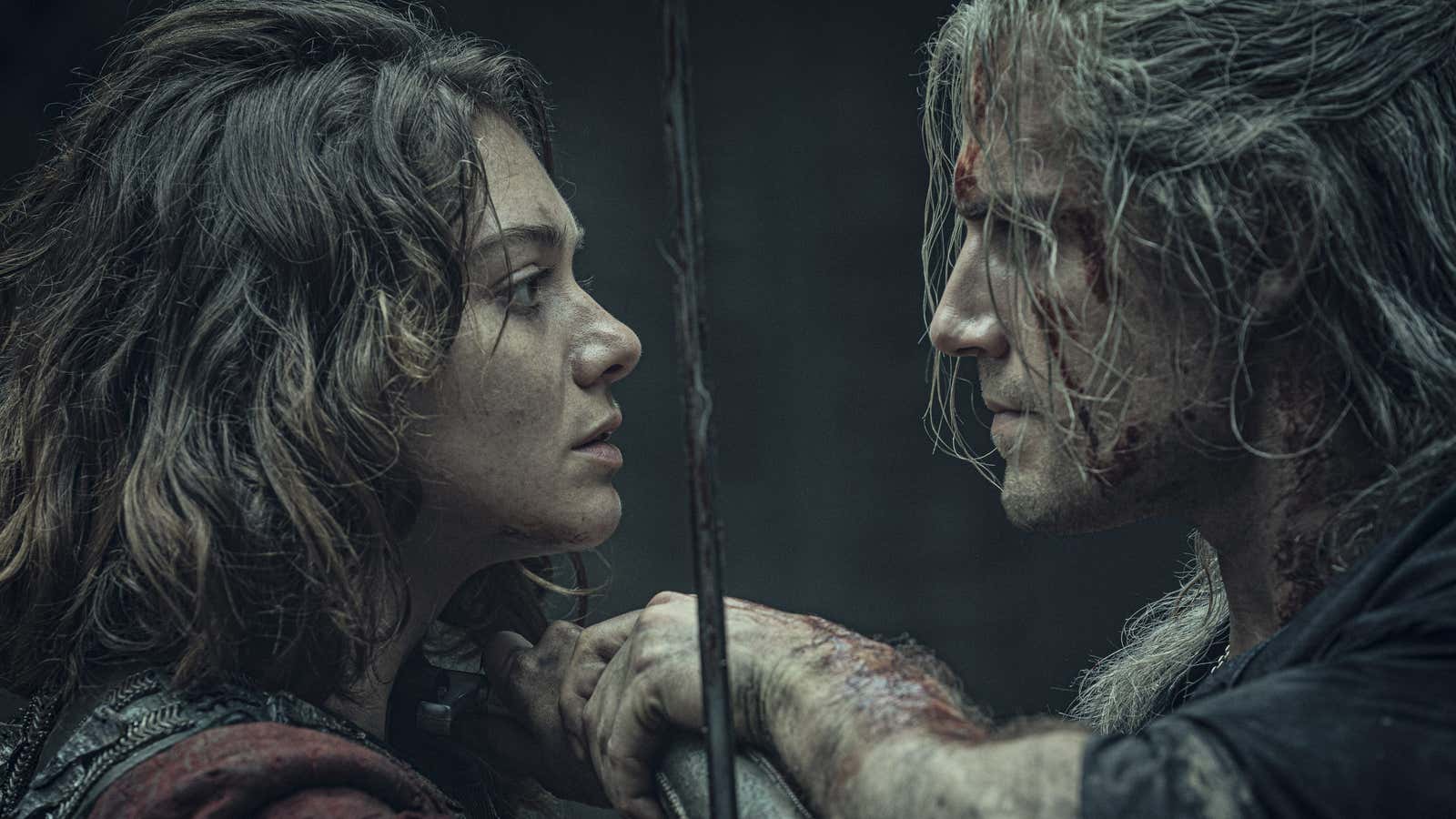Game of Thrones ended its record-breaking eight-season run on HBO in May to a divisive reaction from fans and critics, but its legacy as the most successful fantasy TV series in history was never in doubt. Netflix—and virtually every other network and streaming service—hopes to tap into the growing fantasy craze with more monsters and magic.
The HBO drama changed the way mainstream television audiences perceive the fantasy genre, say Lauren Schmidt Hissrich, the showrunner of Netflix’s own upcoming fantasy series, The Witcher.
“You have this audience out there that realized, ‘Oh my god, there’s this entire genre that I haven’t been paying attention to,'” Hissrich told Quartz. “I owe a huge debt of gratitude to Game of Thrones. It showed that everyone can come to fantasy and find themselves. That’s why it’s so big on television now.”
Based on the popular series of novels by Polish writer Andrzej Sapkowski, The Witcher follows the adventures of Geralt of Rivia, a monster hunter who patrols the “Continent,” a fantasy realm beleaguered with evil beings (both human and magical). Along the way, he collides with a powerful sorceress and a young princess fleeing her war-torn kingdom. It debuts on the streaming service Dec. 20.
The Witcher is just one of the many big-budget, ambitious fantasy series you’ll be able to watch on TV in the coming years. Amazon is investing billions of dollars in a show based on J.R.R. Tolkien’s The Lord of the Rings. (The company is also developing shows based on Conan the Barbarian and The Wheel of Time, a popular series of novels by Robert Jordan.) Showtime is making a TV show based on the fantasy book series The Kingkiller Chronicle. And HBO, for its part, isn’t quite ready to let Westeros go: It has already ordered a Game of Thrones prequel, titled House of the Dragon, straight to series.
Though it’s been nearly 20 years since Peter Jackson’s The Lord of the Rings film trilogy and the Harry Potter movies made fantasy a respectable (and lucrative) film genre, TV has been slower to take it on due to financial constraints. But thanks to deep-pocketed Silicon Valley players (as well as Disney entering the streaming landscape), television production budgets are ballooning, and networks are more willing to take the financial leap now that Thrones has demonstrated the genre can be more than a niche offering. The audience for fantasy clearly exists, and now the money does too.
“We’re now, technologically speaking, at a place in television where we can create really believable monsters,” Hissrich said. “The expectations are there, and in television we’re finally able to meet them.”
Unlike Game of Thrones, which notoriously downplayed many of its most magical fantasy elements in order to appeal to genre newcomers, The Witcher leans into those conventions. Geralt himself is a practitioner of magic, and hardly a minute goes by without a character casting a spell, felling some foul beast, or trying to lift a curse. Through the five episodes provided to critics, it’s less overtly political than its HBO counterpart, though perhaps that will come later once it has laid the groundwork of its fictional universe.
“People have asked me, ‘Is it going to be the next Game of Thrones?’ The truth is, The Witcher is going to stand on its own two legs,” Hissrich said. “It really is its own show.”
Indeed, so far, the series focuses almost exclusively on three characters (two of them are women), and how their stories become intertwined. There is nudity and sex, but that’s not a focus. If Game of Thrones was a sex-filled, intricate ensemble drama, The Witcher is more straightforward fantasy adventure.
Since all episodes of its first season will be made available to Netflix users at the same time, The Witcher won’t have the opportunity to organically build its audience the way a weekly water-cooler series (like Game of Thrones) can. But it may not have to: Netflix has already ordered a second season of the show—something the streaming service does not often do this early—which suggests it’s confident there will be an audience for its expensive fantasy gamble.
“The hallmark of good fantasy is that it’s based in reality,” Hissrich added. “People think of fantasy movies and television to be about pure escapism, and it’s not really. You want to be able to relate to what these characters are going through. My first goal was to create really grounded, believable characters. And then you get to the fun stuff.”
